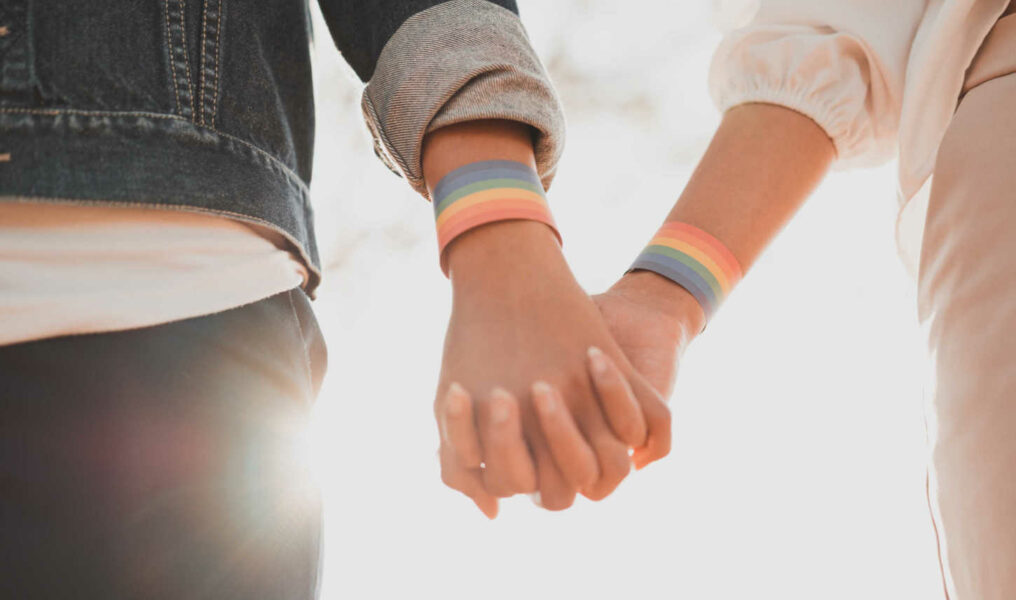Mike Hall and his fiancé Anthony Hamilton's story is harrowing. The two were riding scooters home from Hall's job at the Kroger at 16 Mile Road and Crocker in Harrison Township when they were assaulted.
Hall bore the brunt of the damage and was left with a brain bruise and fractures above and below one of his eye sockets. He has also suffered migraines, severe sinus drainage issues and poor memory since the attack.
When one member of the LGBTQ+ community is attacked in such a vicious manner — police are investigating it as a possible hate crime — it affects all of us. It reminds us of our vulnerability and of the fact full equality remains elusive. So how do we process such a crime? What should the community response be? And is there anything we can do to prevent it from happening again?
Pride Source spoke to two Michigan-based therapists and posed to them these very questions. The first is Christine Cantrell, Ph.D., who works out of Royal Oak.
"For any community under attack – immigrants, Blacks, LGBTQ, Muslims, etc. – it is crucial for the community at large to respond in support of human rights," Cantrell said. "If one person's rights are violated, none of us is free."
Cantrell's suggestions ran the gamut.
Stay informed and engage with the community
"There are many things you can do to cope with and respond to such violence," she said. "Be informed. Read LGBTQ news and magazines to learn what the most recent incidents and trends are in discrimination and attacks against us."
Cantrell suggests engaging in dialogue with like-minded people and gathering as a group of friends or community members to identify dialogue points and ideas for how to improve the safety and quality of life for LGBTQ people.
"These suggestions are best coming from those who are targeted, as they know what is not working or what makes them feel vulnerable," said Cantrell. "For example, if a trans person doesn't feel safe using public transportation to go to a support group or an outing, perhaps a buddy driving list could [be of help]."
Cantrell also suggests using organizations like Affirmations, Lambda Legal, Metropolitan Community Churches, choruses, and sports and dinner groups to connect and gather with other LGBTQ+ folks and their allies.
"Ask friends in the community what groups they are a part of online. Sometimes you will need a participant's referral to be a part of a private or closed group. Bring up individual and community concerns and brainstorm together about what actions you might take as an individual or as a group."
Organize visible responses to hate crime incidents
Another community response, said Cantrell, is to organize protests, vigils, marches and letter-writing campaigns when such horrible events take place. These allow the victims to feel supported while showing the community at large our visibility and numbers.
Finally, Cantrell said that everyone should "be proactive in their own life. Talk with loved ones and friends about your concerns about LGBTQ+ safety and how to have each other's backs in public and private situations. Turn to each other for ideas, support and a hug and a shoulder to cry on as needed."
Paul Mattson is a social worker, community activist and a deacon of Metropolitan Community Church-Detroit.
"What happened to [Mike and Anthony] did happen to all of us and, theoretically, could happen to any of us," he said. "It behooves all of us to not live in fear but to be aware of our surroundings all the time. This is not in any way to blame the victims. I'm sure they felt perfectly safe where they were. But even at that rate, since things like this do happen, we need to know and be aware to keep ourselves safe."
And what about the victims? What can we do for them?
"I think victim support is very important," Mattson said. "A lot of times, the victims end up feeling alone and possibly even further victimized depending on how they're treated by the police or medical caregivers. So I think reaching out in any way that we can to support the victims is good so they do not feel alone and know they have the support of the greater Detroit LGBTQ community."
Community organizations also have a part to play.
"I think it's important that affiliated organizations like Affirmations, MCC-D, LGBT Detroit, PFLAG, all of them, either cooperatively or individually, take a stand or at least make a statement against this kind of thing," he adds.
Mattson urges organizations and citizens to put pressure on Harrison Township authorities to thoroughly investigate the recent incident as a hate crime.











